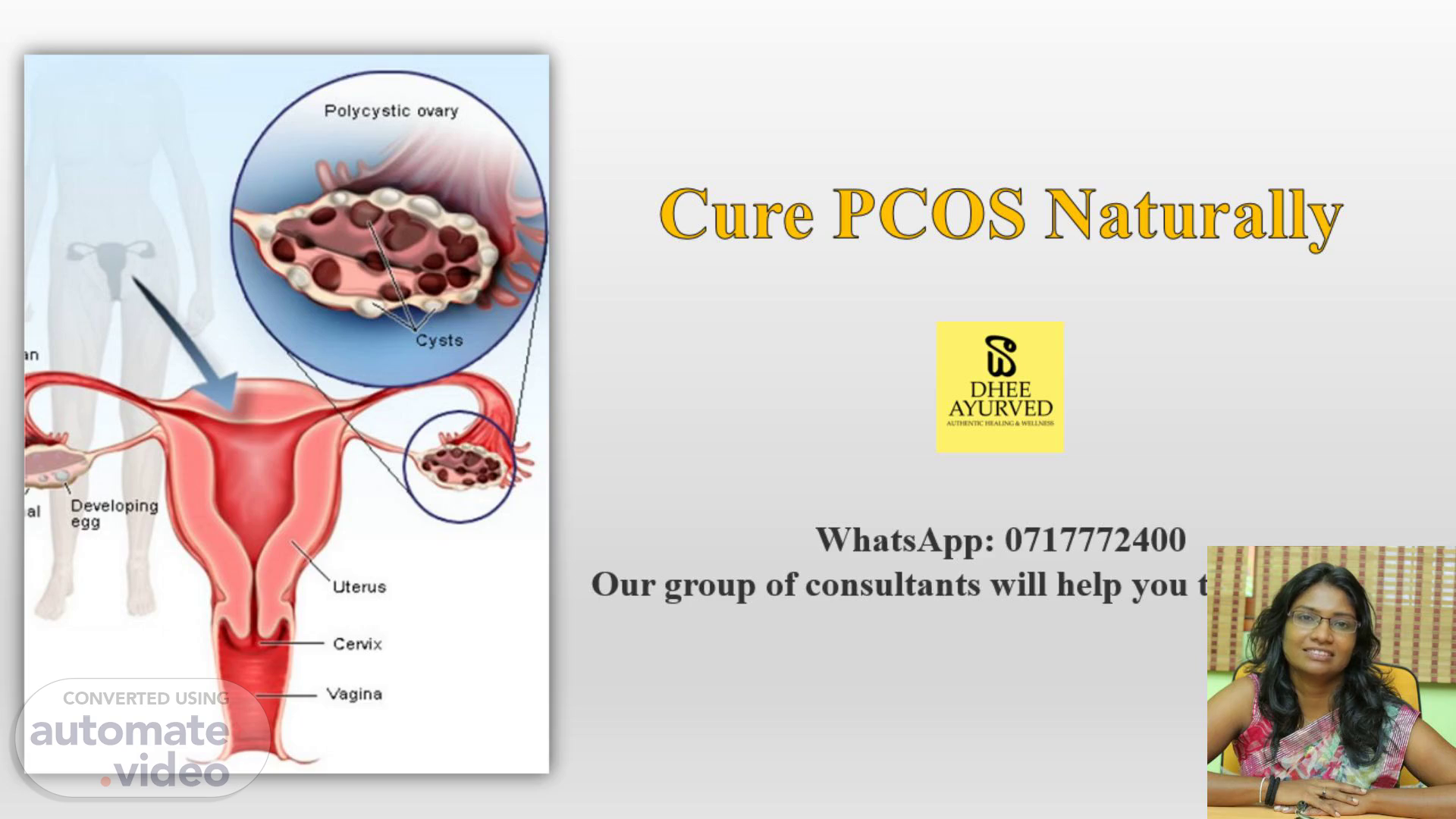Scene 1 (0s)
[image] Developing egg polycystic ovary Cysts Uterus Cervix Vagina.
Scene 2 (9s)
[Audio] Polycystic Ovary Syndrome, or PCOS, is a serious genetic, hormone, metabolic and reproductive disorder that affects women. It's the leading cause of female infertility, and it can also lead to lifelong complications like depression, anxiety, obesity, type II diabetes, and cardiovascular disease. In fact, PCOS affects one in ten women of reproductive age..
Scene 3 (34s)
[Audio] Approximately one-fifth of Sri Lankan women between the ages of 15 and 44 have been found to suffer from polycystic ovary syndrome. Moreover, it's alarming to note that half of these women remain undiagnosed. Furthermore, research has shown that women with PCOS are three times more likely to develop endometrial cancer..
Scene 4 (53s)
[Audio] Women with polycystic ovary syndrome (PCOS) often experience various symptoms, including missed periods, irregular periods, or very light periods. They may also have ovaries that are larger than normal or contain multiple cysts. Additionally, they may exhibit excess body hair, particularly on the chest, stomach, and back. Furthermore, they may experience weight gain, especially around the belly, as well as acne or oily skin. Some women with PCOS may also suffer from male-pattern baldness or thinning hair, while others may struggle with infertility. In some cases, they may develop small pieces of excess skin on the neck or armpits, or notice dark or thick skin patches on the back of the neck, in the armpits, and under the breasts..
Scene 5 (1m 40s)
[Audio] Maintaining a healthy lifestyle is crucial for women suffering from polycystic ovary syndrome (PCOS). Adopting healthy eating habits is one key aspect of this, as it involves consuming a diet low in carbohydrates and refined sugars, rich in fibers, and avoiding junk and unhealthy foods altogether. Instead, opt for wholesome ingredients that nourish both body and mind. Regular exercise is also essential, with a minimum of 30 minutes of moderate physical activity recommended each day. Activities like yoga can be particularly beneficial in reducing stress and improving overall well-being. However, it's not just about physical health; maintaining emotional well-being is equally important. Women with PCOS often struggle with issues related to fertility, obesity, hair loss, and excess hair growth, which can lead to feelings of social isolation, depression, and negatively impact their quality of life. It's vital to prioritize self-confidence and adopt a healthy lifestyle to effectively manage these symptoms and improve overall quality of life..
Scene 6 (2m 49s)
[Audio] Maintaining a healthy lifestyle is crucial for women with polycystic ovary syndrome (PCOS). This includes adopting healthy eating habits by consuming a diet low in carbohydrates and refined sugars, rich in fibers, and free from junk and unhealthy foods. Regular exercise, such as a 30-minute moderate physical activity or yoga, is also essential. Furthermore, it's vital to prioritize emotional health by addressing issues related to fertility, obesity, hair loss, and excess hair growth, which can contribute to psychological distress, social isolation, depression, and negatively impact overall well-being. By motivating oneself and adopting a healthy lifestyle, women with PCOS can effectively manage the symptoms of this condition and improve their quality of life..
Scene 7 (3m 39s)
[Audio] Women with Polycystic Ovary Syndrome (PCOS) can find relief from their symptoms through various treatments available in Ayurveda. These treatments are tailored to address specific symptoms, co-existing health issues, and reproductive goals. If you're experiencing symptoms similar to those associated with PCOS, it's essential to consult with a qualified Ayurvedic gynecologist. They will work with you to develop a personalized treatment plan that addresses your unique needs. For more information on PCOS and available treatments, please feel free to reach out to our team via WhatsApp at 0717772400. We're here to help you take control of your health and well-being..
